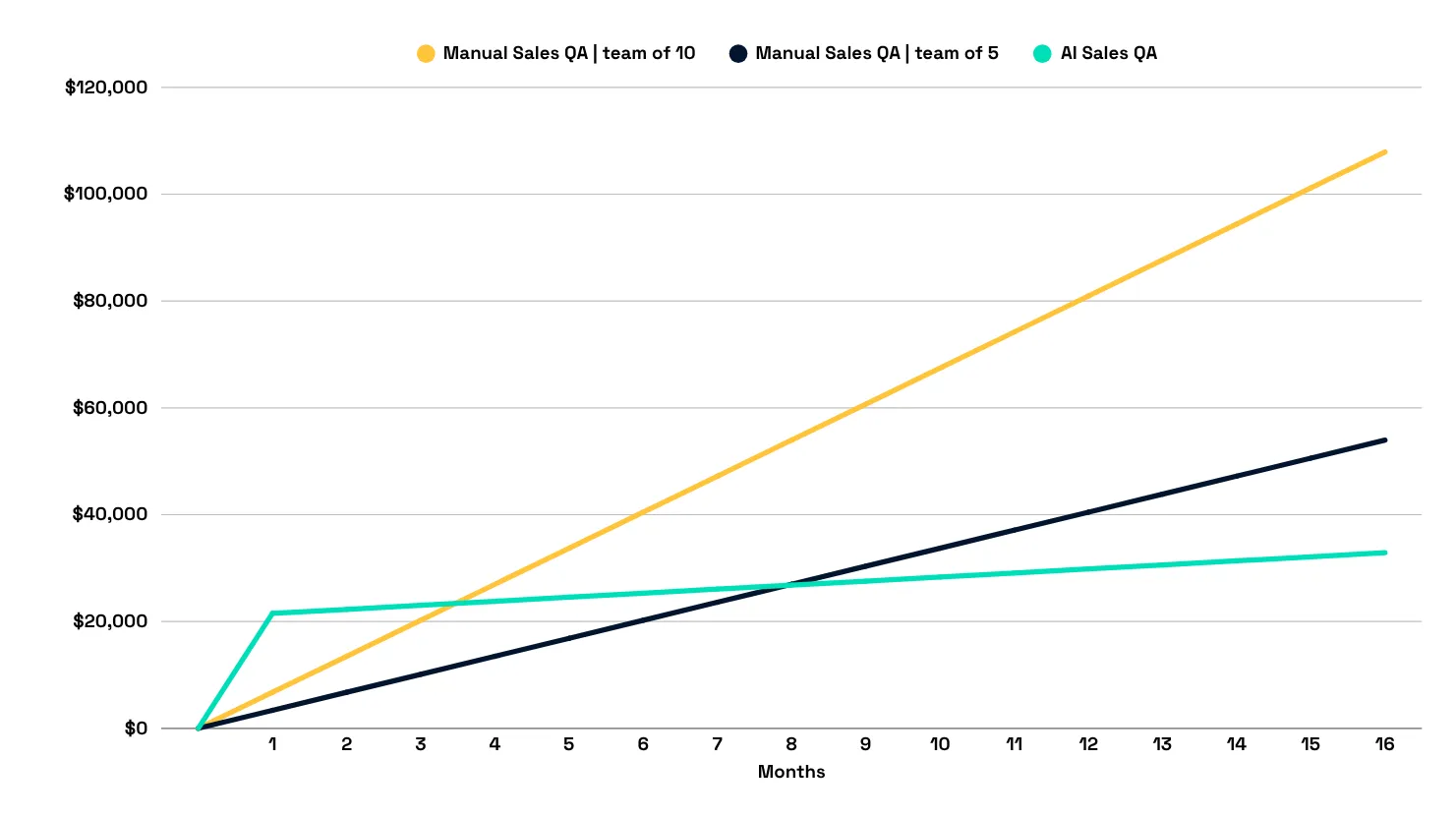
Reduces operational costs and streamlines QA - Our solution achieved an 80%+ reduction in QA costs enabling confident scaling of operations.

Achieves uniform service quality, a crucial factor for brand reputation in the competitive EdTech space. Coverage increased significantly – from 10% to 100% monitoring, surpassing human accuracy (99% accuracy vs. human 96% accuracy).

Improves customer satisfaction by quickly spotting and correcting rep errors before they impact broader clientele.







